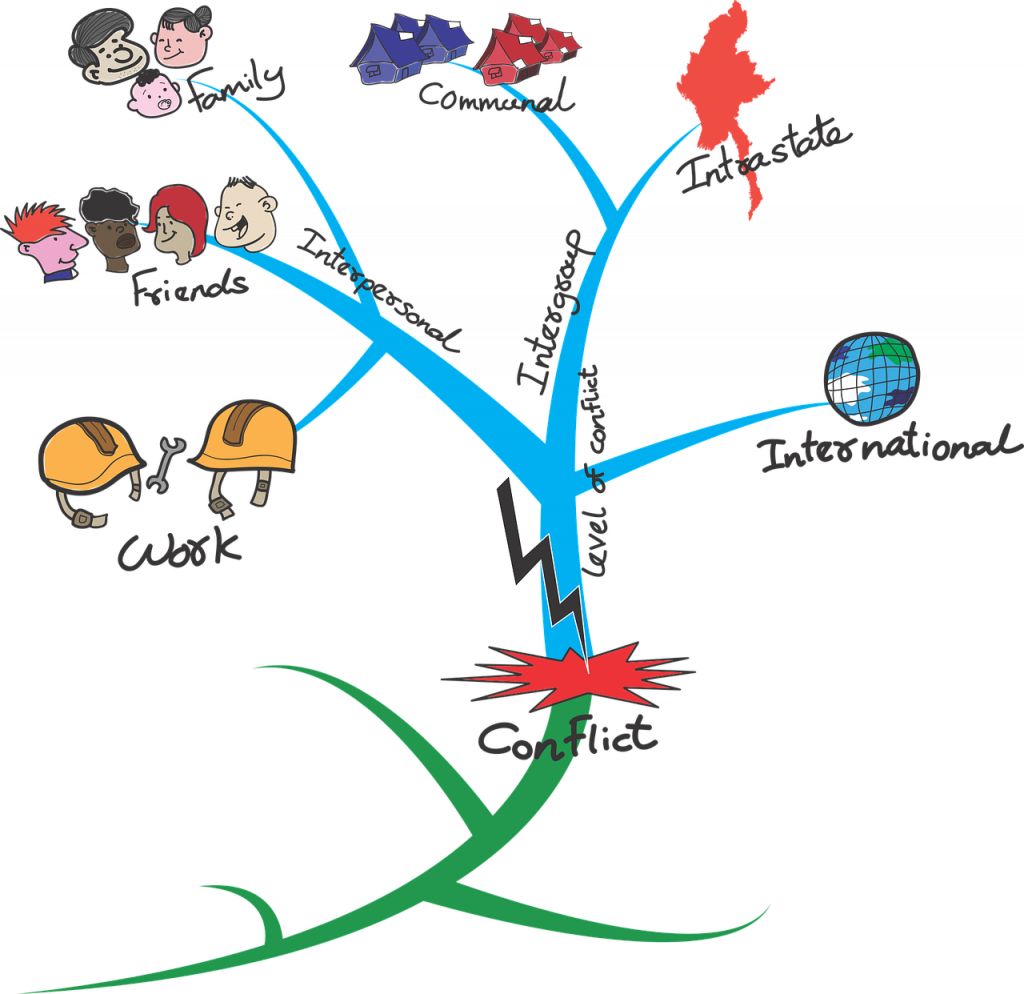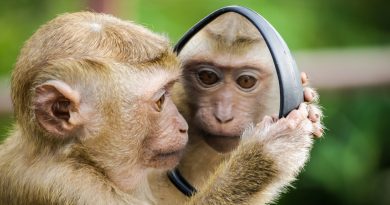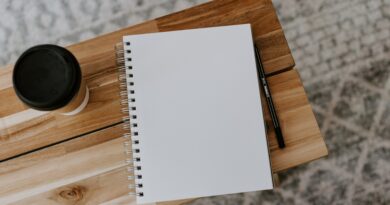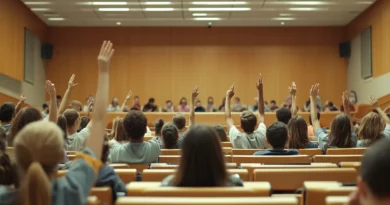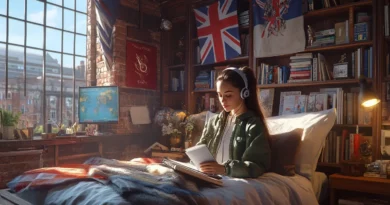Crédito da Imagem: Mote Oo Education from Pixabay
Hazel Wagner passou a vida aprendendo a aprender. Hazel compartilha seu trabalho sobre mapeamento mental e o que ele pode fazer para compreensão, memorização e retenção. Hazel possui quatro diplomas universitários, incluindo um Ph.D. em matemática pela Northwestern University, que ela conquistou enquanto criava três filhos. Ela publicou quatro livros sobre matemática e negócios, incluindo Power Brainstorming and Business, Brains and B.S. Ela é uma sobrevivente do câncer, voluntária, empresária, pioneira em Testes Referenciados por Critérios na educação e uma pesquisadora sobre como as pessoas aprendem assuntos difíceis em matemática.
Hazel é especialista em mapeamento mental, ensinando outras pessoas como usá-lo para aumentar e melhorar sua memória, rendimento nos estudos, planejamento e muito mais.
Esta palestra foi apresentada em um evento TEDx usando o formato de conferência TED, mas organizado de forma independente por uma comunidade local.
Fonte: TED.COM
| Audio | |
|---|---|
Normal | Slow |
| English Transcript | Tradução |
| Mind mapping is a method by which you can make notes, take notes and help your memory, because you're working in a way that helps your brain, instead of getting in the way. | Mapeamento mental é um método pelo qual você pode fazer anotações, tomar notas e ajudar a sua memória, porque você está trabalhando de uma forma que ajuda o seu cérebro, em vez de atrapalhar. |
| I spent most of my life worrying about whether I was going to remember things. | Passei a maior parte da minha vida me preocupando se iria me lembrar das coisas. |
| I had parents who had wonderful memories and other people in my family and mine wasn't. | Eu tive pais que tinham memórias maravilhosas e outras pessoas da minha família não tinham. |
| So I went to college, four degrees, including a PhD in Mathematics. | Então fui para a faculdade, quatro diplomas, incluindo um doutorado em matemática. |
| Obviously I spent lots of time listening to lectures. | Obviamente, passei muito tempo ouvindo palestras. |
| I made thousands and thousands of pages of notes. | Fiz milhares e milhares de páginas de anotações. |
| I worried so much that I would forget something, that I felt like I had to write everything. | Eu me preocupava tanto em esquecer alguma coisa, que sentia que tinha que escrever tudo. |
| But whether you handwrite it, like I did, which ended up with a callous on my finger, or you type it, you're still just transcribingr. | Mas quer você escreva à mão, como eu fazia, o que acabou resultando em um caso em meu dedo, ou quer você digite, você ainda está apenas transcrevendo. |
| You're not thinking about what you're hearing or reading, you're not organizing it the way your brain needs to organize it, so that it will remember it better, so that you can learn it, store it, and then retrieve it when you want to. | Você não está pensando no que está ouvindo ou lendo, não está organizando a informação da maneira que seu cérebro precisa para organizá-la, para que ele se lembre melhor, para que você possa aprender, armazenar e depois recuperar quando você quiser. |
| And that's really important, being able to retrieve it. | E isso é muito importante, ser capaz de recuperar a informação. |
| So also when you are writing so fast, typing so fast, you're not paying lots of attention and all of a sudden people around me would laugh and I go: "What did he say? What did she say?", because I'd missed it. | Então também quando você está escreve muito rápido, digita muito rápido, você não está prestando muita atenção e de repente as pessoas ao meu redor riam e eu dizia: "O que ele disse? O que ela disse?", porque eu tinha perdido. |
| You're not really hearing everything, you can't write as fast as someone speaks. | Você não está realmente ouvindo tudo, você não pode escrever tão rápido quanto alguém fala. |
| So this is a mind map. | Portanto, este é um mapa mental. |
| This is a handwritten mind map, it's the kind that I recommend to most people to do, it's much better to do them, at least when you're first learning but even later. | Este é um mapa mental escrito à mão, é o tipo que recomendo para a maioria das pessoas, é muito melhor fazê-los, pelo menos quando você está aprendendo pela primeira vez, e mesmo mais tarde. |
| With just a plain piece of paper and a pencil or a pen. | Com apenas um pedaço de papel comum e um lápis ou caneta. |
| The idea is that you are doing something very visual, you're also using kinesthetic, you are using your hands, your arms, you're thinking about this whole thing as you're going, you're developing something that starts in the center and builds out radially. | A ideia é que você está fazendo algo muito visual, você também está usando cinestésia, está usando suas mãos, seus braços, você está pensando em tudo isso enquanto está desenvolvendo algo que começa no centro e se expande radialmente. |
| So in the center goes the topic. | Portanto, no centro vai o tópico. |
| It could be the name of someone you're listening to, it could be the title of a book, it could be a question that you're trying to brainstorm. | Pode ser o nome de alguém que você está ouvindo, pode ser o título de um livro, pode ser uma pergunta que você está tentando resolver. |
| And then you build out, just free form, and you only put down what's important to you. | E então você constrói, de forma livre, e você apenas coloca o que é importante para você. |
| So each person's mind map, even of the same talk, of the same book, will be very different, because what you want to remember, what's important to you, is going to be different than someone else, and that's wonderful. | Então o mapa mental de cada pessoa, mesmo da mesma conversa, do mesmo livro, será muito diferente, porque o que você quer lembrar, o que é importante para você, será diferente de outra pessoa, e isso é maravilhoso. |
| It's very personal and notice also, you all, you put down single words or short phrases, this isn't whole sentences or paragraphs. | É muito pessoal e reparem também, todos vocês, vocês escrevem palavras isoladas ou frases curtas, não são frases ou parágrafos inteiros. |
| Do you think you store in your brain paragraphs?. | Você acha que armazena parágrafos em seu cérebro?. |
| How about sentences?. | Que tal frases?. |
| What about those outlines, you know, you spent a lot of time in school, Roman numeral 1 A B C, remember that stuff?. | E aqueles contornos, sabe, você passou muito tempo na escola, numeral romano 1ABC, lembra dessas coisas?. |
| Do you think that's what you store in your brain?. | Você acha que é isso que você armazena em seu cérebro?. |
| I don't think so, you store images, you store key ideas, you store the connections between the things you're learning and things you already knew. | Acho que não, você armazena imagens, armazena ideias-chave, armazena as conexões entre as coisas que está aprendendo e as que já sabia. |
| So, shortly after I finished my fourth degree, I learned about this thing called mind mapping. | Então, logo depois de terminar meu quarto grau, aprendi sobre essa coisa chamada mapeamento mental. |
| I had never heard of it before. | Eu nunca tinha ouvido falar disso antes. |
| This, as you can see, is a piece of a mind map. | Como você pode ver, isso é um pedaço de um mapa mental. |
| In fact, it's the part of the mind map of my talk. | Na verdade, é parte do mapa mental da minha palestra. |
| But there I was learning about it for the first time, and first I felt great regret, because boy would that have saved me time and helped me a lot when I was taking notes and trying to learn things and especially getting ready for tests or being able to tell somebody else about what I heard. | Mas lá fui eu aprender sobre isso pela primeira vez, e primeiro me senti muito arrependida, porque teria me poupado tempo e me ajudado muito quando eu estava tomando notas e tentando aprender coisas e principalmente me preparando para as provas ou sendo capaz de contar a outra pessoa sobre o que ouvi. |
| And then I started to get angry. | E então comecei a ficar com raiva. |
| How come I never came across this before?. | Como é que nunca havia me deparado com isso antes?. |
| How come nobody had ever shown me this thing called mind mapping?. | Como é que ninguém nunca havia me mostrado essa coisa chamada mapeamento mental?. |
| And as I researched it, I found that there were places around the world where things were being talked about. | E enquanto eu pesquisava, descobri que havia lugares ao redor do mundo onde as coisas estavam sendo comentadas. |
| In England they were doing a lot of it and in Australia, but we hadn't heard very much about it here. | Na Inglaterra eles estavam usavam muito e na Austrália, mas não tínhamos ouvido falar muito sobre isso aqui. |
| And I finally felt very grateful that I had finally, because it works like the brain works. | E finalmente me senti muito grata por ter conhecido, porque funciona como o cérebro. |
| My research, published way back in 1975, proved how important the visual and kinesthetic is to people understanding mathematics. | Minha pesquisa, publicada em 1975, provou a importância do visual e do cinestésico para a compreensão da matemática pelas pessoas. |
| And now I had found a tool to apply in all kinds of curricula, and all kinds of subjects, not just mathematics. | E agora eu tinha encontrado uma ferramenta para aplicar em todos os tipos de currículos e todos os tipos de matérias, não apenas matemática. |
| So we need to be able to do something to help our brain, to work with our brain rather than against it. | Portanto, precisamos ser capazes de fazer algo para ajudar nosso cérebro, trabalhar com nosso cérebro e não contra ele. |
| And the way a mind map works, it's compact, it's all on one page you only write keywords or short phrases. | E da forma como um mapa mental funciona, é compacto, está tudo em uma página onde você apenas escreve palavras-chave ou frases curtas. |
| But those trigger words, those key words, trigger for you the bigger idea, so you learn to pay attention to what you're reading or what you're hearing and write down what's most important so it triggers the bigger idea. | Mas essas palavras-chave, essas palavras-chave, desencadeiam para você uma ideia maior, então você aprende a prestar atenção no que está lendo ou ouvindo e anota o que é mais importante para que desencadeie uma ideia maior. |
| So later, when you want to think about it and talk about it, you can easily do it. | Então, mais tarde, quando você quiser pensar e falar sobre isso, você pode fazer isso facilmente. |
| I was attracted because of what it does for Academia, but I used it all the years in business too. | Fiquei atraída pelo que ele faz para a Academia, mas também o usei todos os anos no negócio. |
| Every meeting, every meeting with a customer, every sales meeting, everyone that you go to. | Cada reunião, cada reunião com um cliente, cada reunião de vendas, cada pessoa com quem você se encontra. |
| Fantastic way to take notes and to explain it to someone else. | É uma maneira fantástica de fazer anotações e explicar para outra pessoa. |
| So here is how it works. | Então é assim que funciona. |
| You take a piece of paper horizontally. | Você pega um pedaço de papel na horizontal. |
| The reason it's horizontal is so that while you're writing and while you're reading the word, most of the words are facing the way we usually read. | A razão de ser horizontal é que enquanto você está escrevendo e lendo a palavra, a maioria das palavras está orientada para a forma como normalmente lemos. |
| By the way, it shouldn't have lines, but if you can't find a piece of paper without lines, then don't worry about it, just put it horizontal and ignore the lines. | A propósito, o papel não deve ter linhas, mas se você não conseguir encontrar um pedaço de papel sem linhas, não se preocupe, apenas coloque-o na horizontal e ignore as linhas. |
| Write down key words, write down short phrases, and very important, the connections between these things. | Escreva palavras-chave, frases curtas e, muito importante, as conexões entre essas coisas. |
| You build out radially, so in the center is the topic or the name or the person or the question, and you build out completely free form. | Você constrói radialmente, então no centro está o tópico ou o nome ou a pessoa ou a pergunta, e você constrói de forma completamente livre. |
| Writing, doing your branches and writing what's on it, whatever works for you. | Escrever, fazer suas ramificações e escrever o que está nelas, o que funcionar para você. |
| And sometimes there was a subject you were paying attention to and writing something on one branch, and suddenly later something else comes up or you think of something, you go back and add it to that branch, completely free form. | E às vezes tem um assunto no qual você estava prestando atenção e escrevendo algo em um ramo, e de repente, mais tarde, outra coisa surge ou você pensa em algo, você volta e adiciona a esse ramo, de forma completamente livre. |
| Again, very personal, the way it works for you, so you can go back to looking at it. | Mais uma vez, é muito pessoal, é a maneira como funciona para você, então você pode voltar a olhar para ela. |
| You are thinking, you're not blindly documenting, you're not blindly transcribing something, you're thinking about how does it fit together, how does it work and how will I remember it when I need to. | Você está pensando, você não está documentando cegamente, você não está transcrevendo algo cegamente, você está pensando em como isso se encaixa, como funciona e como vou me lembrar disso quando precisar. |
| So I'm going to give you a couple of examples and I think it'll help you really understand how this works. | Vou dar alguns exemplos e acho que vão te ajudar a realmente entender como isso funciona. |
| And I chose TED examples, because I think you might be familiar with it. | E escolhi exemplos do TED, porque acho que você deve estar familiarizado com eles. |
| The first example I thought I'd share with you is Dan Barber's talk about "How I fell in love with a fish". | O primeiro exemplo que pensei em compartilhar com você é a palestra de Dan Barber sobre "Como me apaixonei por um peixe". |
| Now, here is the way I would have done it the old-fashioned way, right?. | Agora, aqui está a maneira que eu teria feito da maneira antiga, certo?. |
| I would have written everything down, line after line, just following what he said. | Eu teria escrito tudo, linha após linha, apenas seguindo o que ele disse. |
| And how would I explain that to someone else?. | E como eu explicaria isso para outra pessoa?. |
| I have to read the whole thing. | Eu teria que ler tudo. |
| How would I find a particular point that I wanted to remember?. | Como eu encontraria um ponto específico que gostaria de lembrar?. |
| I, again, I have to read the whole thing, just like studying and going back through the exactly the same things you heard the first time. | Eu, novamente, eu tenho que ler a coisa toda, assim como estudar e voltar exatamente às mesmas coisas que você ouviu da primeira vez. |
| But here is the mind map of Dan Barber's talk "How I fell in love with a fish". | Mas aqui está o mapa mental da palestra de Dan Barber "Como me apaixonei por um peixe". |
| So if you look at the branches here, first he was a chef and he certainly served a lot of fish, and he fell in love with a particular fish, because he understood it was sustainable. | Então, se você olhar os galhos aqui, primeiro ele era chef e certamente servia muito peixe, e ele se apaixonou por um determinado peixe, porque entendeu que era sustentável. |
| And he did a little more research and he found out that they were feeding the fish 30 percent chicken and he decided "Ah, it's not sustainable" and he fell out of love with that fish. | E ele pesquisou um pouco mais e descobriu que eles estavam alimentando os peixes com 30 por cento de frango e ele decidiu "Ah, não é sustentável" e ele se desapaixonou por aquele peixe. |
| So later, he tasted a fish that was overcooked and still delicious, he fell in love with fish too and this fish was so amazing that he even ate the skin, which he said he never did before because it was delicious. | Então, mais tarde, ele provou um peixe cozido demais e ainda delicioso, ele se apaixonou por aqueles peixes também e esse peixe era tão incrível que ele até comeu a pele, o que ele nunca havia feito antes, porque era delicioso. |
| And he went to talk to Miguel. | E ele foi falar com o Miguel. |
| Miguel was the person who he understood ran the fish farm and Miguel said "I don't really run a fish farm, I run a sanctuary for birds and there are lots of fish there and I don't have to bring any food for the fish, it's all natural, they just eat what they naturally eat and the water is clean and everything". | Miguel era a pessoa que ele entendia que dirigia a piscicultura e o Miguel disse "Não tenho uma piscicultura, dirijo um santuário para pássaros e há muitos peixes lá e não tenho de trazer comida para os peixes, é tudo natural, comem só o que comem naturalmente e a água é limpa e tudo mais". |
| So Dan Barber learned a lot about this, and learned a lot about agriculture and has recommendations on it, but what was most important about his talk is that I noticed he asked questions, really, really good questions, and it was the questions that gave him the insights. | Então Dan Barber aprendeu muito sobre isso, e aprendeu muito sobre agricultura e tem recomendações a respeito, mas o mais importante sobre sua palestra é que percebi que ele fez perguntas, perguntas muito, muito boas, e foram as perguntas que deram a ele os insights. |
| He asked questions about "What is sustainability?". | Ele fez perguntas sobre "O que é sustentabilidade?". |
| He asked the question "How could an overcooked foot fish taste this good?", "How could a fish that is overcooked taste this good?", and then he asked "Why do flamingos fly so far for their food?". | Ele fez a pergunta "Como um peixe cozido demais pode ter um gosto tão bom?", "Como um peixe cozido demais pode ter um gosto tão bom?", E então perguntou "Por que os flamingos voam tão longe para comer?". |
| So it was about the questions, they are what helped him understand the whole issue and then be able to share it with us. | Então, trata-se das perguntas, foram elas que o ajudaram a entender todo o assunto e depois poder compartilhar com a gente. |
| And you see, a mind map allows me to explain it to you. | E você vê, um mapa mental me permite explicar isso a você. |
| You can follow what I am saying. | Você pode acompanhar o que estou dizendo. |
| Let's do another one. | Vamos fazer outro. |
| Sir Ken Robinson has done a number of talks. | Sir Ken Robinson fez várias palestras. |
| He talked about creativity in schools and claims that schools are killing creativity. | Ele falou sobre criatividade nas escolas e afirma que as escolas estão matando a criatividade. |
| And here again is my little hand done mind map. | E aqui está novamente o meu pequeno mapa mental feito à mão. |
| And I do recommend that when people are first learning them they do that, but you'll find even later, even after you get really good at it, just grabbing a piece of paper and a pencil. | E eu recomendo que quando as pessoas que estão aprendendo pela primeira vez, que façam os mapas a mão, mas você descobrirá ainda mais tarde, mesmo depois de ficar realmente bom nisso, é só pegar um pedaço de papel e um lápis. |
| That's handy at the moment you want to take notes, you'll do that all the time, you won't have to worry about doing it. | Isso é útil no momento em que você quiser fazer anotações, você fará isso o tempo todo, não terá que se preocupar com isso. |
| So, in any special form, but of course when you want other people to read your handwriting, sometimes it's not so good, I admit that, so I do put it sometimes into a computer program, and there are lots of them, and that allows other people to read it as well. | Então, em qualquer forma especial, mas é claro quando você quer que outras pessoas leiam sua caligrafia, às vezes não é tão bom, eu admito, então às vezes coloco em um programa de computador, e há muitos deles, e que permite que outras pessoas também o leiam. |
| So Ken Robinson is the one who talked about creativity in school and he said that the problem, the good thing about children, is that children aren't afraid to be wrong and so therefore, they're more creative. | Então Ken Robinson é quem falou sobre criatividade na escola e disse que o problema, a coisa boa sobre as crianças, é que as crianças não têm medo de errar e, portanto, são mais criativas. |
| But we kind of schooled some of that out of them. | Mas nós meio que desensinamos isto a elas na escola. |
| He also had some wonderful quotes that I wanted to remember. | Ele também tinha algumas citações maravilhosas que eu queria lembrar. |
| One of his quotes had to do with the fact that if insects were gone, he said, all life would be over, but if humans were gone the rest of life would flourish. | Uma de suas citações tinha a ver com o fato de que se os insetos morressem, ele disse, toda a vida acabaria, mas se os humanos se fossem, o resto da vida floresceria. |
| I thought that was pretty good, and I wanted to make sure I remembered it, so it's one of my branches. | Achei que era muito bom e queria ter certeza de que me lembrava, então é um dos meus ramos. |
| He also talked about the use of jokes and he had lots of jokes in his talk. | Ele também falou sobre o uso de piadas e ele contou muitas piadas em sua palestra. |
| And there were so many jokes and I also wanted to keep track of some of them so I put a branch out there for jokes that I wanted to remember. | E havia tantas piadas e eu também queria manter um registro de algumas delas, então coloquei um ramo lá para as piadas que queria me lembrar. |
| One of them was, imagine for a moment that you're an English teacher and you have nine year old Shakespeare in your class. | Uma delas foi, imagine por um momento que você é um professor de inglês e tem Shakespeare de nove anos em sua classe. |
| How are you going to handle that, right?. | Como você vai lidar com isso, certo?. |
| So here I have a mind map where I showed what was important to me in his talk. | Então aqui eu tenho um mapa mental onde mostrei o que era importante para mim em sua palestra. |
| And being able to do that on a mind map allows you to be able to pay attention to just what you want. | E ser capaz de fazer isso em um mapa mental permite que você seja capaz de prestar atenção apenas no que deseja. |
| Write down just the things that you care about, and there they are, ready for you to explain. | Escreva apenas as coisas que lhe interessam e aí estão, prontas para serem explicadas. |
| And he wanted creativity at the top of the pyramid along with literacy, and I'm reminded of that when I look at the mind map. | E ele queria criatividade no topo da pirâmide junto com a alfabetização, e me lembro disso quando olho para o mapa mental. |
| So, what about you?. | E você?. |
| Maybe you're feeling a little angry too. | Talvez você também esteja se sentindo um pouco zangado. |
| If you have never heard of this before, maybe you're thinking you could have been helping your brain all along or maybe you knew about this a bit, but never really paid attention and learned to use it. | Se você nunca ouviu falar sobre isso antes, talvez esteja pensando que poderia ter ajudado seu cérebro o tempo todo ou talvez soubesse um pouco sobre isso, mas nunca prestou atenção e aprendeu a usá-lo. |
| It takes some practice. | Requer alguma prática. |
| Anything new that you do takes some practice, so I challenge you now to practice using mind mapping and you'll really be helping your brain. | Qualquer coisa nova que você fizer requer um pouco de prática, então eu o desafio agora a praticar o uso de mapas mentais e você realmente estará ajudando seu cérebro. |
| I have one last little story or anecdote to share with you. | Tenho uma última pequena história ou anedota para compartilhar com você. |
| And that is that some years ago I was asked to help my young granddaughter, who was not doing well in social studies. | E é que há alguns anos me pediram para ajudar minha jovem neta, que não ia bem nos estudos sociais. |
| And I went over to help her and I showed her how to mind map, and she mind mapped the chapter about the US government, and the next day she got an A. | E eu fui ajudá-la e mostrei a ela como fazer um mapa mental, e ela fez mapa do capítulo sobre o governo dos Estados Unidos, e no dia seguinte ela tirou A. |
| The first A she'd ever gotten in Social Studies. | O primeiro A que ela obteve em Estudos Sociais. |
| It was very exciting. | Foi muito emocionante. |
| So two days ago I called her and I asked her "Hey, do you remember that day I came over and showed you mind mapping?". | Então, dois dias atrás eu liguei para ela e perguntei "Ei, você se lembra daquele dia em que eu fui aí e te mostrei como fazer mapas mentais?". |
| And she said "I sure do, we had all these colored pens and we drew this picture and I really understood that chapter and I did very well on the test the next day and I kept using it in school, especially in high school". | E ela disse "Claro que sim, tínhamos todas essas canetas coloridas e fizemos esse desenho e eu realmente entendi aquele capítulo e me saí muito bem na prova do dia seguinte e continuei usando na escola, principalmente no colégio". |
| So I challenge you not only for you to practice mind mapping and learn it better but share it with some others. | Portanto, eu o desafio não apenas a praticar o mapeamento mental e aprendê-lo melhor, mas também a compartilhá-lo com outras pessoas. |
| When you do that, you will internalize it better and be able to use it better. | Ao fazer isso, você vai internalizá-lo melhor e ser capaz de usá-lo melhor. |
| Teach someone else, and especially teach some children to use mind mapping. | Ensine outra pessoa e, especialmente, ensine algumas crianças a usar o mapeamento mental. |
| Thank you. | Obrigada. |
Contagem de palavras
A tabela abaixo exibe as palavras encontradas neste vídeo bem como o número de vezes em que aparecem.
Veja também: Para que serve esta tabela?
| Freq. | Palavra | Freq. | Palavra | Freq. | Palavra |
|---|---|---|---|---|---|
| 98 | and | 77 | you | 77 | I |
| 75 | the | 73 | to | 61 | it |
| 51 | a | 49 | that | 48 | of |
| 40 | so | 30 | in | 29 | about |
| 28 | he | 25 | you're | 21 | mind |
| 21 | is | 20 | was | 19 | what |
| 18 | do | 17 | how | 16 | with |
| 16 | this | 15 | fish | 15 | but |
| 14 | or | 13 | map | 13 | have |
| 13 | for | 13 | be | 12 | your |
| 12 | are | 11 | way | 11 | not |
| 11 | just | 11 | it's | 11 | had |
| 11 | all | 10 | when | 10 | really |
| 9 | would | 9 | very | 9 | there |
| 9 | talk | 9 | remember | 9 | my |
| 9 | brain | 9 | because | 8 | were |
| 8 | things | 8 | something | 8 | some |
| 8 | out | 8 | one | 8 | important |
| 8 | first | 7 | write | 7 | works |
| 7 | think | 7 | they | 7 | people |
| 7 | on | 7 | mapping | 7 | here |
| 7 | good | 7 | down | 7 | at |
| 7 | able | 6 | we | 6 | wanted |
| 6 | want | 6 | time | 6 | thing |
| 6 | then | 6 | them | 6 | store |
| 6 | someone | 6 | said | 6 | notes |
| 6 | me | 6 | lot | 6 | going |
| 6 | else | 6 | did | 6 | could |
| 6 | can | 6 | asked | 6 | as |
| 6 | also | 5 | writing | 5 | words |
| 5 | whole | 5 | thinking | 5 | read |
| 5 | questions | 5 | put | 5 | piece |
| 5 | never | 5 | most | 5 | love |
| 5 | lots | 5 | later | 5 | if |
| 5 | help | 5 | heard | 5 | fell |
| 5 | even | 5 | doing | 5 | better |
| 5 | attention | 4 | will | 4 | who |
| 4 | what's | 4 | using | 4 | use |
| 4 | that's | 4 | talked | 4 | take |
| 4 | she | 4 | share | 4 | school |
| 4 | practice | 4 | paper | 4 | little |
| 4 | like | 4 | learning | 4 | learned |
| 4 | learn | 4 | jokes | 4 | his |
| 4 | her | 4 | go | 4 | form |
| 4 | explain | 4 | everything | 4 | don't |
| 4 | creativity | 4 | being | 4 | before |
| 4 | back | 3 | you'll | 3 | wonderful |
| 3 | which | 3 | went | 3 | well |
| 3 | understood | 3 | too | 3 | those |
| 3 | spent | 3 | sometimes | 3 | showed |
| 3 | short | 3 | same | 3 | reading |
| 3 | question | 3 | phrases | 3 | overcooked |
| 3 | over | 3 | other | 3 | only |
| 3 | now | 3 | much | 3 | miguel |
| 3 | meeting | 3 | maybe | 3 | mathematics |
| 3 | lines | 3 | life | 3 | key |
| 3 | idea | 3 | hearing | 3 | free |
| 3 | found | 3 | find | 3 | felt |
| 3 | fast | 3 | every | 3 | especially |
| 3 | done | 3 | does | 3 | day |
| 3 | dan | 3 | children | 3 | center |
| 3 | called | 3 | build | 3 | branches |
| 3 | branch | 3 | an | 3 | allows |
| 3 | again | 3 | after | 2 | years |
| 2 | worry | 2 | work | 2 | while |
| 2 | whether | 2 | where | 2 | visual |
| 2 | us | 2 | up | 2 | understand |
| 2 | trying | 2 | trigger | 2 | topic |
| 2 | thousands | 2 | thought | 2 | these |
| 2 | than | 2 | teach | 2 | taste |
| 2 | takes | 2 | sustainable | 2 | sure |
| 2 | studies | 2 | still | 2 | social |
| 2 | sentences | 2 | see | 2 | schools |
| 2 | say | 2 | run | 2 | robinson |
| 2 | right | 2 | retrieve | 2 | research |
| 2 | recommend | 2 | ready | 2 | radially |
| 2 | quotes | 2 | personal | 2 | person |
| 2 | pencil | 2 | paying | 2 | pay |
| 2 | particular | 2 | paragraphs | 2 | our |
| 2 | old | 2 | next | 2 | need |
| 2 | name | 2 | more | 2 | moment |
| 2 | make | 2 | look | 2 | listening |
| 2 | line | 2 | knew | 2 | kinesthetic |
| 2 | kinds | 2 | kind | 2 | ken |
| 2 | I'm | 2 | I'd | 2 | horizontal |
| 2 | him | 2 | helping | 2 | helped |
| 2 | has | 2 | gone | 2 | getting |
| 2 | get | 2 | food | 2 | finally |
| 2 | farm | 2 | fact | 2 | examples |
| 2 | ever | 2 | eat | 2 | different |
| 2 | delicious | 2 | connections | 2 | completely |
| 2 | come | 2 | chapter | 2 | challenge |
| 2 | can't | 2 | came | 2 | by |
| 2 | book | 2 | blindly | 2 | bigger |
| 2 | between | 2 | barber's | 2 | around |
| 2 | any | 2 | angry | 2 | along |
| 2 | ago | 1 | young | 1 | year |
| 1 | wrong | 1 | written | 1 | worrying |
| 1 | worried | 1 | world | 1 | working |
| 1 | word | 1 | won't | 1 | without |
| 1 | why | 1 | whatever | 1 | water |
| 1 | wasn't | 1 | usually | 1 | used |
| 1 | understanding | 1 | typing | 1 | type |
| 1 | two | 1 | triggers | 1 | transcribingr |
| 1 | transcribing | 1 | track | 1 | top |
| 1 | tool | 1 | together | 1 | title |
| 1 | through | 1 | they're | 1 | therefore |
| 1 | their | 1 | thank | 1 | tests |
| 1 | test | 1 | tell | 1 | ted |
| 1 | teacher | 1 | tasted | 1 | talks |
| 1 | taking | 1 | sustainability | 1 | suddenly |
| 1 | sudden | 1 | subjects | 1 | subject |
| 1 | stuff | 1 | studying | 1 | story |
| 1 | starts | 1 | started | 1 | special |
| 1 | speaks | 1 | somebody | 1 | skin |
| 1 | sir | 1 | single | 1 | shown |
| 1 | shouldn't | 1 | shortly | 1 | she'd |
| 1 | shakespeare | 1 | served | 1 | schooled |
| 1 | saying | 1 | saved | 1 | sanctuary |
| 1 | sales | 1 | roman | 1 | rest |
| 1 | researched | 1 | reminded | 1 | remembered |
| 1 | regret | 1 | recommendations | 1 | reason |
| 1 | rather | 1 | ran | 1 | pyramid |
| 1 | published | 1 | proved | 1 | program |
| 1 | problem | 1 | pretty | 1 | point |
| 1 | plain | 1 | places | 1 | picture |
| 1 | phd | 1 | person's | 1 | percent |
| 1 | pens | 1 | pen | 1 | part |
| 1 | parents | 1 | paid | 1 | pages |
| 1 | page | 1 | outlines | 1 | others |
| 1 | organizing | 1 | organize | 1 | obviously |
| 1 | numeral | 1 | number | 1 | noticed |
| 1 | notice | 1 | nobody | 1 | nine |
| 1 | new | 1 | needs | 1 | naturally |
| 1 | natural | 1 | missed | 1 | mine |
| 1 | might | 1 | method | 1 | memory |
| 1 | memories | 1 | mapped | 1 | many |
| 1 | made | 1 | looking | 1 | literacy |
| 1 | let's | 1 | lectures | 1 | least |
| 1 | laugh | 1 | last | 1 | know |
| 1 | killing | 1 | keywords | 1 | kept |
| 1 | keep | 1 | it'll | 1 | issue |
| 1 | isn't | 1 | into | 1 | internalize |
| 1 | instead | 1 | insights | 1 | insects |
| 1 | including | 1 | imagine | 1 | images |
| 1 | ignore | 1 | ideas | 1 | humans |
| 1 | horizontally | 1 | high | 1 | hey |
| 1 | helps | 1 | handy | 1 | handwritten |
| 1 | handwriting | 1 | handwrite | 1 | hands |
| 1 | handle | 1 | hand | 1 | hadn't |
| 1 | great | 1 | grateful | 1 | granddaughter |
| 1 | grabbing | 1 | government | 1 | gotten |
| 1 | got | 1 | goes | 1 | give |
| 1 | gave | 1 | fourth | 1 | four |
| 1 | forget | 1 | foot | 1 | following |
| 1 | follow | 1 | fly | 1 | flourish |
| 1 | flamingos | 1 | fit | 1 | finished |
| 1 | finger | 1 | feeling | 1 | feeding |
| 1 | fashioned | 1 | far | 1 | fantastic |
| 1 | family | 1 | familiar | 1 | facing |
| 1 | exciting | 1 | example | 1 | exactly |
| 1 | everyone | 1 | english | 1 | england |
| 1 | ended | 1 | easily | 1 | each |
| 1 | drew | 1 | documenting | 1 | developing |
| 1 | degrees | 1 | degree | 1 | decided |
| 1 | days | 1 | customer | 1 | curricula |
| 1 | creative | 1 | course | 1 | couple |
| 1 | computer | 1 | compact | 1 | comes |
| 1 | colored | 1 | college | 1 | clean |
| 1 | class | 1 | claims | 1 | chose |
| 1 | chicken | 1 | chef | 1 | certainly |
| 1 | care | 1 | callous | 1 | c |
| 1 | business | 1 | builds | 1 | bring |
| 1 | brainstorm | 1 | boy | 1 | bit |
| 1 | birds | 1 | been | 1 | barber |
| 1 | b | 1 | australia | 1 | attracted |
| 1 | ate | 1 | arms | 1 | aren't |
| 1 | apply | 1 | anything | 1 | another |
| 1 | anecdote | 1 | amazing | 1 | am |
| 1 | already | 1 | ah | 1 | agriculture |
| 1 | against | 1 | afraid | 1 | admit |
| 1 | add | 1 | across | 1 | academia |

